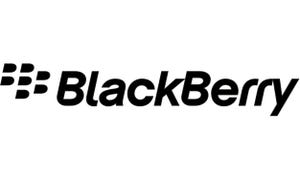How to Choose a Managed Detection and Response (MDR) Solution
MDR empowers organizations with enhanced security. Look for these four capabilities when selecting an MDR product.
August 14, 2023

By Matt Schneiderman, Web Writer and Editor, BlackBerry
Managed detection and response (MDR) has emerged as a crucial solution for organizations looking to bolster their security measures. MDR allows businesses to outsource the management of endpoint detection and response (EDR) products deployed across their network domains. With real-time threat-hunting capabilities, MDR services detect and mitigate malicious activities on individual endpoints while promptly alerting the service provider's security operations center (SOC) for further investigation. By leveraging the expertise of security specialists, MDR services relieve organizations of the complexities and criticality associated with security operations.
Types of MDR Solutions
MDR services come in various forms, tailored to an organization's technology environment and risk requirements. These include:
Bring-your-own security stacks (hybrid) are MDR solutions that integrate with existing security products deployed within an environment.
Full vendor-supplied MDR stacks are standalone MDR platforms that operate independently.
Cloud MDR solutions are MDR services delivered through a centrally managed, multitenant cloud platform providing log management, orchestration, real-time analytics, and a user interface (UI) dashboard.
Managed extended detection and response (managed XDR) are MDR solutions that extend beyond endpoint detection to include protection for email, cloud services, DNS, Internet of Things (IoT) and medical devices, and industrial control systems (ICS) and supervisory control and data acquisition (SCADA) networks.
Custom MDR solutions are tailored MDR offerings designed to meet an organization's unique requirements.
An effective MDR solution includes the following EDR agents:
Workstation agents
Server agents
Network security monitoring agents
Email server agents
DNS server agents
IoT or medical device agents
ICS or SCADA security agents
4 Key Considerations for Evaluating MDR Solutions
To assess the quality of an MDR solution, it is essential to evaluate associated EDR products and cybersecurity services separately. Consider the following factors:
Malware detection and response: An effective MDR solution should swiftly detect and respond to a wide range of threats, minimizing the dwell time of malware and preventing it from impacting the affected system.
Threat detection capabilities: The ability to detect both known and unknown threats, coupled with utilizing the latest threat intelligence, is crucial for an MDR solution's efficacy. Managed XDR solutions that offer extended capabilities should efficiently correlate security telemetry and orchestrate a comprehensive real-time response across the network.
Service commitment: Assess the MDR provider's commitment to delivering services, including around-the-clock support availability and the comprehensiveness of its service-level agreement (SLA). Additionally, consider the provider's reputation, scalability, and ability to leverage global cyber-threat intelligence.
Customization and remediation: Evaluate whether the MDR provider offers tailored products and comprehensive threat remediation and mitigation services to address your unique environment.
For more comprehensive insights into the cost of building versus buying an MDR solution and more, BlackBerry's MDR buyers guide provides a useful tool to help you through this journey.
Selecting the Right MDR Provider
Choosing the appropriate MDR provider requires a comprehensive analysis of the organization's risk requirements and operational technologies. Decision-makers should have a clear understanding of their network's critical assets, sensitive data, employed technologies, and the relevant threat landscape. This knowledge enables organizations to evaluate each MDR provider based on their product and service offerings.
To gain further insights into the performance of various endpoint security solutions, independent research reports like the MITRE Enginuity ATT&CK Evaluations publish performance benchmarks. These evaluations offer valuable information on how vendors' products perform against simulated attacks, aiding in the comparison of different solutions.
Fortify Your Security Posture With MDR
MDR has become an indispensable security solution, empowering organizations to proactively detect, respond, and mitigate threats across their network infrastructure. By carefully selecting the right MDR provider and solution, organizations can fortify their security posture and safeguard their critical assets from ever-evolving cyber threats.
Companies of all sizes must now contend with a growing number of devices, each one representing a new addition to their attack surfaces. And they must do so while balancing skill gaps and resource shortages, all while hoping they don't end up in an adversary's crosshairs. This is challenging enough for larger organizations, but for small and midsized businesses, it verges on impossible. Businesses need to partner with cybersecurity providers that provide the expertise, support, and endpoint protection they need to contend with a modern threat landscape.
About the Author

Matt Schneiderman is BlackBerry's Web Writer and Editor, where he researches and publishes articles about cybersecurity and malware topics.
Read more about:
Sponsor Resource CenterYou May Also Like



